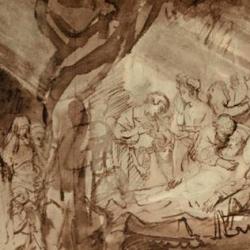Peter Jones writes, “In spite of Marcion’s massive rejection of early Christian orthodoxy, and his denunciation and excommunication by the second century Church, the great nineteenth century Liberal historian and theologian, Adolf von Harnack, called Marcion ‘the first Protestant.’ For Harnack, ‘Protestant’ meant ‘liberal.’ The similarly sympathetic judgment by Helmut Koester, a Bultmannian New Testament scholar, lately at Harvard, calls Marcion ‘a textual critic, philologian and reformer.’ When these church fathers are dismissed by contemporary liberal scholars as ‘myopic heresy hunters,’ and the terms ‘rotestant’ and ‘reformer’ are associated with the Gnostic Marcion, making him a virtual second-century Martin Luther, we must see that we are in the presence of a ‘palace revolution.’ The popularity of Marcion can only be understood in the light of the present-day Gnosticization of Biblical Studies. Liberal Lutheran Koester is disarmingly clear. He urges scholars to abandon the New Testament canon in order to allow the other early Christian voices—‘heretics, Marcionites, Gnosticism, Jewish Christians, perhaps also women—- . . . to be heard again.’ The contemporary promotion of the Nag Hammadi Gnostic texts as a valid expression of early Christianity is a further example of liberalism’s predilection for Gnosticism. This is in no sense a ‘reformation’: it is rather a profound revisionism of Christian history leading to a major theological revolution, namely, the normalization of heretical Gnosticism in contemporary mainline Christianity.”















